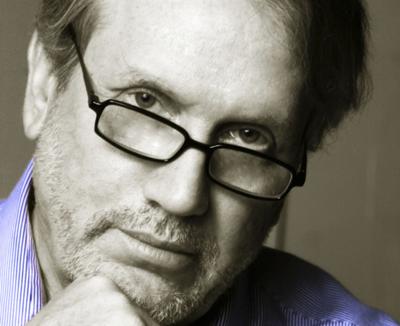Quarterbacks And Leadership

We are witnessing an end to an era of leadership. The NFL quarterbacks we’ve been watching for the past two decades are retiring.
There was valiant leader here in Indiana named Peyton Manning, who in February 2007 led the Indianapolis Colts to their lone Super Bowl title. Manning defined leadership on the field and in his community. He quarterbacked the Colts to 11 playoff runs, eight division titles, three AFC championship games, two Super Bowl appearances, and one championship title in Super Bowl XLI. He won five NFL MVP awards, four with the Colts.
I recount these heroics because one golden era of the NFL quarterback is passing before our eyes. Tom Brady, Ben Roethlisberger and, perhaps, Aaron Rodgers, have or are expected to retire in the coming weeks, a year or two after Drew Brees, Eli Manning, and Tony Romo hung up the proverbial cleats. Brady won seven of 10 Super Bowls, was 16-4 against the Indianapolis Colts, 6-1 versus the Chicago Bears and 7-1 against the Cincinnati Bengals, making him the singularly most dreaded and despised QB in the Hoosier heartland.
They are passing the torch to a new generation of QBs in Joe Burrow, Patrick Mahomes, and Josh Allen.
Another thing has become clear: The 2012 decision by Colts owner Jim Irsay to forego a $28 million check to Manning six months after he underwent spinal fusion surgery can now be termed to be a bust. While Peyton Manning sat out the 2011 season and the Colts unsuccessfully “sucked for Luck” – Andrew Luck – going 2-14, in March 2012 Irsay cut Peyton Manning, and Colt fans heard this heartbreaking salutation from No. 18: “Thank you for letting me be your quarterback.”
Manning’s legacy is foundationally planted in Indianapolis. There’s a children’s hospital named after him, his statue guards the north flank of Lucas Oil Stadium which the city built after his arrival in 1998, preventing a relocation to Los Angeles. Prep box scores are dotted with players, both male and female, named “Peyton.” Hoosiers were so into Peyton Manning that as “The Sheriff” called audibles, a hush swept across the stadium. He is the one Hoosier who could impress on SNL.
Colt fans then watched Manning sign with the Denver Broncos – with the team receiving nothing in return – and in four years he led them to a pair of Super Bowls, his second title and his fifth MVP award. In his historic 2013 season, No. 18 threw a record 55 touchdown passes. He won his second Super Bowl in his final game in 2015.
Andrew Luck led the Colts to three consecutive playoff appearances before a bad offensive line and a snowboarding injury began limiting his productivity. He missed the 2017 season, was healthy a year later to win the “Comeback Player of the Year” award after throwing for 4,593 yards and 39 touchdowns.
The bottom dropped out in August 2019, just two weeks before the season began. Luck stunned the sports world, his city and adopted state with his abrupt retirement. “I’ve been stuck in this process,” Luck said at an emotional press conference. “I haven’t been able to live the life I want to live. It’s taken the joy out of this game.”
In career divisional and championship rounds, Luck was 1-to-3 with five TDs, eight interceptions, a lost fumble and a 56.33 QB rating. The Colts could have recouped $25 million in signing bonuses, but the billionaire Irsay let Luck keep the money in an ironic bookend to the stunning and disastrous Manning release.
With that, the post-QB golden age era has drearily set in for Indianapolis. Jacoby Brissett, Philip Rivers and now Carson Wentz have been under center, with none of them coming close to Peyton Manning’s giant legacy.
“The hype and build-up of Luck was such that the Colts were willing to kick their Hall of Fame, franchise QB to the curb in order to get him,” observed Michael Hurley of CBS Boston. Or as Ryan Stano of Bleacher Report put it, “Hindsight is always 20/20. But the cruel reality is that the Colts made the wrong decision to part ways with the best player in franchise history. It was a ridiculously hard decision. Jim Irsay essentially had to decide if he wanted to part ways with the greatest player the franchise has ever known to draft the best prospect since John Elway. It was the wrong decision.”
One of the first impressions Carson Wentz made after joining the Colts was to refuse the COVID-19 vaccine, without specifying to the fan base why. The contrast to Peyton Manning or Tom Brady is that they would do whatever it took to be prepared to play, in every game, on every play.
Manning sensed the obligation to lead.
In his Hall of Fame acceptance speech last summer, Peyton Manning displayed the leadership we all sorely miss: “We have a responsibility to make our game stronger, from the corner playground to the most celebrated stadiums. We just need to take tomorrow on our shoulders as readily as we donned our pads before each game. Let this moment become a cherished memory, and then remember: A legacy is only worthwhile when there is a future to fuel.”
That, folks, is what leadership is all about. -The columnist is publisher of Howey Politics Indiana at www.howeypolitics.com. Find Howey on Facebook and Twitter @hwypol.
